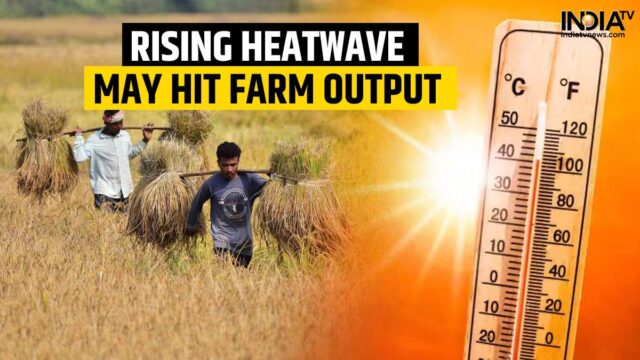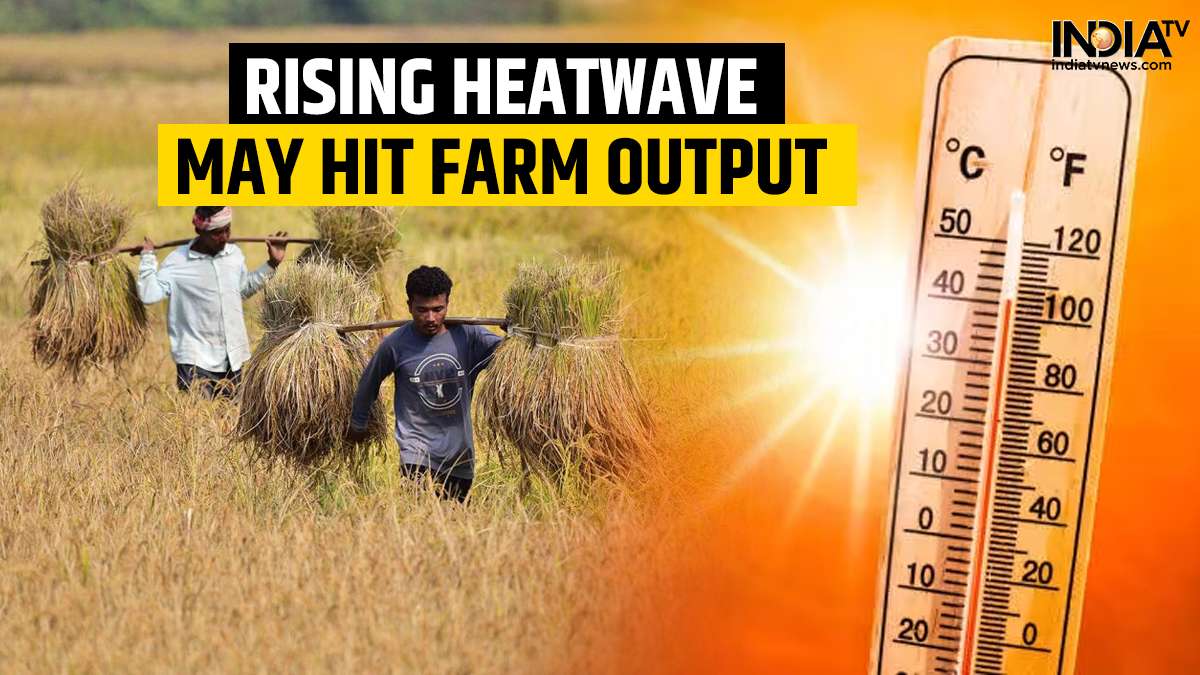
As India grapples with scorching heatwaves, concerns rise over a potential spike in food inflation, particularly impacting vegetable and mango prices, which are already soaring. Following a prolonged surge in cereal and pulse prices, experts questioned whether this marks a new volatile front in the battle against inflation. The Indian Meteorological Department (IMD) painted a grim picture, predicting no immediate relief from the intense heatwaves as April temperatures surpass normal levels.
Aside from the health hazards posed by these soaring temperatures, economists highlighted the looming threat to agricultural output, which could further exacerbate inflationary pressures.
Vegetable prices have witnessed a sharp uptick, with inflation expected to persist at elevated levels until June, contingent upon the arrival of a normal monsoon. As the nation braces for the economic repercussions, policymakers face mounting pressure to mitigate the impact on consumers.
Here are the other effects of the heatwave:
1. Understanding the severity of heatwaves: Definitions and implications
The scorching heatwaves gripping eastern, central, and southern India pose a severe threat as temperatures soar above normal levels. According to the India Meteorological Department (IMD), a heatwave occurs when maximum temperatures surge at least 4.5 degrees Celsius higher than usual, leading to fatal conditions. Parts of Telangana, Odisha, Jharkhand, and Maharashtra witnessed temperatures ranging from 43 to 46 degrees Celsius on Tuesday, with some regions experiencing 4 to 8 degrees above normal. IMD predicted an increased number of heatwave days in May across multiple states.
2. Impact on agriculture and food prices: Assessing the heatwave’s effects
While the ongoing heatwave may not directly impact wheat crops due to ongoing harvesting, it poses a significant threat to perishable crops like fruits and vegetables. With winter crops like pulses and oilseeds already harvested and the Kharif crop season commencing with the southwest monsoon in June, the focus shifts to the vulnerability of perishable crops. Short-duration vegetables are particularly susceptible to heat, contributing to the volatility in food inflation, which soared to 8.5% in March. Consumer vegetable prices have surged by 28% year-on-year.
3. Potential shortages: Identifying items vulnerable to supply disruptions
Tomato prices have surged by 62% compared to last year as supplies from cooler regions diminish during the summer months. Additionally, the heatwave has adversely affected mango production in Karnataka, Gujarat, and Maharashtra, leading to a spike in prices of the popular summer fruit.
4. Impact on dairy industry: Heatwave’s effect on milk supply and prices
The heatwave negatively impacted milk output due to heat stress and decreased appetite among dairy animals. Studies indicated that the severe heatwave in 2022 resulted in a reduction of milk yields by up to 15%. While milk supplies decreased with rising temperatures, the demand for milk products and beverages surged during the summer months. The management of the demand-supply gap by cooperatives will determine if retail prices of milk and milk products escalate in the coming months. Additionally, egg production suffered due to heat-induced mortality among poultry birds.
5 Consequences beyond food prices: Additional effects of heatwaves
Heatwaves exacerbate water shortages in arid regions and contribute to fatalities. This year, Karnataka, Maharashtra, and Rajasthan grappled with a drinking water crisis. IMD reported an 18% deficit in rainfall from March 1 to April 24 compared to the long-term average. Furthermore, heat stress diminished labor productivity, particularly in the informal sector. According to the Mint, the International Labour Organsation projected that India could lose 5.8% of its annual working hours by 2030 due to heat stress, equivalent to 34 million full-time jobs.
Also read | Stock markets update: Sensex surges over 200 points, Nifty up by 57 points to 22,662 in early trade







































